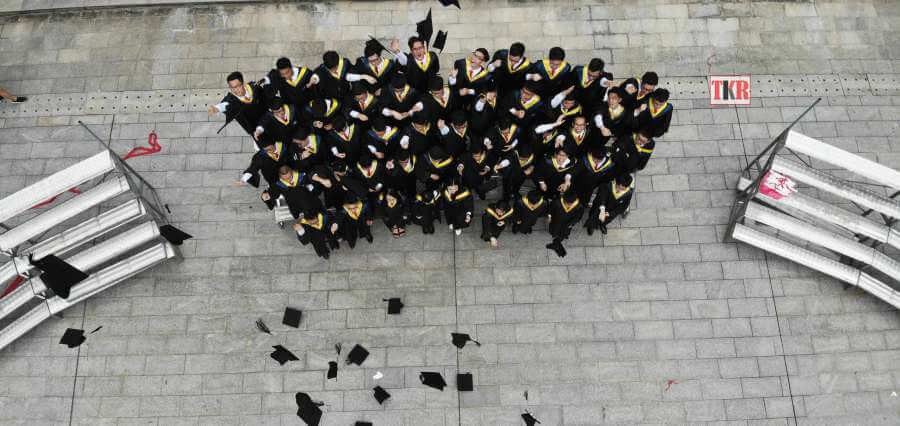EU Dominates in Numbers, But Struggles for Top Spots in Shanghai Ranking
The 2024 Academic Ranking of World Universities (ARWU), also known as the Shanghai Ranking, has been released, showcasing a mixed bag for European universities. While the European Union (EU) boasts a larger number of universities in the top 500 and 1000 compared to the US and China, its representation in the top 50 is comparatively meager. Notably, eight EU universities made it to the top 50, with France taking the lead with three universities in the prestigious group.
Paris-Saclay Leads the Charge for EU Universities
Paris-Saclay University has emerged as the top-ranked EU university in the 2024 Shanghai Ranking, climbing three spots from the previous year to secure the 12th position globally. The university's remarkable ascent has been highlighted by French President Emmanuel Macron, who lauded it as a "magical" achievement. This achievement has solidified France's position as a leading academic force in Europe, particularly in the top tier of global universities.
US and UK Dominate the Top 10
While the EU makes its presence felt in the overall ranking, the top 10 positions are dominated by US and UK universities. Eight of the top 10 universities are American, with the top three positions all belonging to US institutions. The remaining two spots are occupied by the UK's prestigious Cambridge and Oxford universities, ranking fourth and sixth, respectively.
France's Academic Rise
Beyond Paris-Saclay, France has demonstrated its academic strength with two other universities in the top 50. The Paris Sciences et Lettres University (PSL) has jumped eight spots to reach the 33rd position, while Sorbonne University climbed five spots to secure the 41st spot. This strong showing underscores France's commitment to research and innovation, propelling its universities to the forefront of global academic excellence.
German Universities Join the Elite Club
Germany has also emerged as a major contender in the top 50, with three universities making their debut in the prestigious group. The University of Munich secured the 43rd spot, followed by the Technical University of Munich at 47th and Heidelberg University at 50th. This achievement marks a significant leap for German universities, placing them among the world's top research institutions.
EU Dominates in Numbers, but Questions Remain
Despite the EU's overall dominance in the ranking, with 135 universities in the top 500 compared to 114 from the US and 91 from China, questions remain about the ranking methodology. Critics argue that the Shanghai Ranking relies too heavily on quantitative criteria and overemphasizes hard sciences at the expense of social sciences and humanities. The exclusion of disciplines like philosophy and linguistics further fuels these concerns.
Alternative Rankings Offer Different Perspectives
The Shanghai Ranking's reliance on specific metrics and its focus on certain academic areas have led to the development of alternative rankings, such as the Times Higher Education, the QS World University Rankings, and the CWTS Leiden ranking list. Each ranking uses its own methodology, leading to different results. This diversity provides a broader view of global university performance, highlighting different strengths and priorities.
Ukraine Makes its Mark
While the focus has largely been on the performance of EU, US, and Chinese universities, one university stands out as a remarkable newcomer to the Shanghai Ranking. Taras Shevchenko National University of Kyiv (KNU), the first Ukrainian institution to be included in the ranking, has made its debut in the last hundred of the world's top universities, securing a place among the top 1000 universities globally. This achievement signifies the resilience and academic prowess of Ukrainian institutions even in the face of adversity.
Looking Beyond the Rankings
Ultimately, the Shanghai Ranking, like any other ranking, should be considered a snapshot of a university's performance based on specific criteria. It's important to acknowledge the limitations of rankings and to look beyond the numerical scores to understand a university's true value and impact. While rankings provide a valuable tool for comparative analysis, they shouldn't be the sole measure of a university's success or the sole determinant of its global standing.
The Future of Global University Rankings
As the global landscape of higher education continues to evolve, the focus on rankings is likely to remain significant. However, the future of rankings might see a shift towards more nuanced approaches that consider a wider range of factors beyond just academic performance. This could involve incorporating aspects such as societal impact, inclusivity, and sustainability into the ranking criteria, creating a more holistic assessment of a university's overall contribution.
The Importance of Transparency and Collaboration
Moving forward, greater transparency and collaboration between ranking organizations and universities will be crucial. This collaboration will foster a more comprehensive and accurate understanding of university performance and help to address the limitations of existing rankings. The collective effort to create a more inclusive and robust ranking system will ensure a fairer representation of the global academic landscape.
A New Era of Academic Excellence
The 2024 Shanghai Ranking provides a glimpse into the competitive landscape of global higher education. While US and UK universities continue to dominate the top positions, the rise of EU, Chinese, and Ukrainian universities signifies a new era of academic excellence. The future of global university rankings will likely see a greater emphasis on diversity, inclusivity, and a broader range of criteria, creating a more comprehensive assessment of academic performance and societal impact.


















